
He is roaming the streets of Berkeley. Our data points on him suggest that he has confined his roaming to North Berkeley.
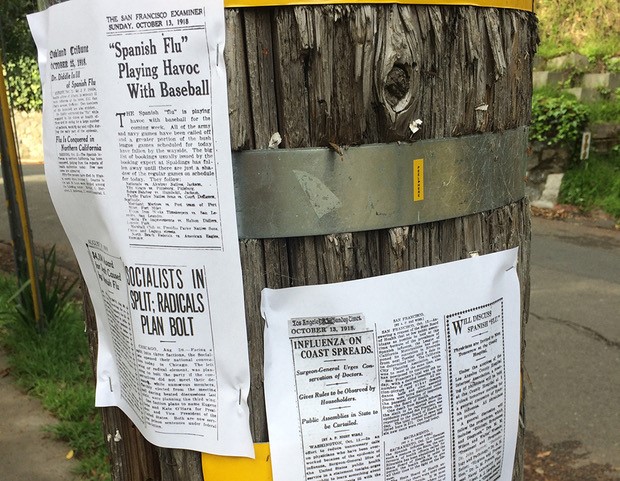
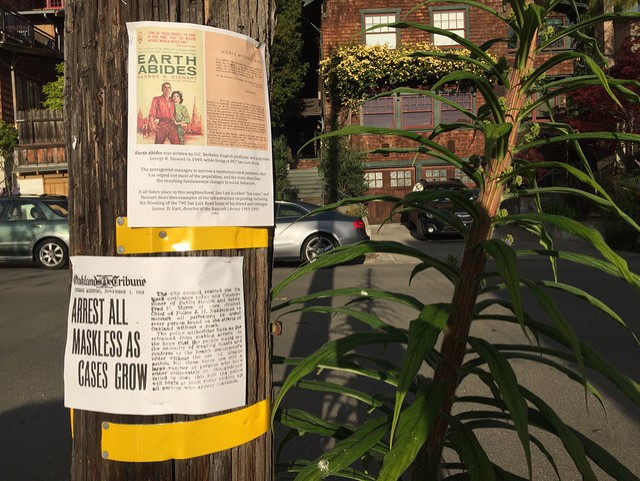
These two photos show what he is doing. What a rose that is in bloom on the trellis in the background of the lower photo, no? Rosa banksiae, common names Lady Banks’ rose, is a species of flowering plant in the rose family, native to central and western China,

The rose is named for Dorothea Lady Banks, the wife of the botanist Sir Joseph Banks. He made his bones on the 1766 natural-history expedition to Newfoundland and Labrador. He took part in Captain James Cook’s first great voyage (1768–1771), visiting Brazil, Tahiti, New Zealand, and Australia. For more than 41 years he was president of the Royal Society, the United Kingdom’s national academy of sciences. He advised King George III on the Royal Botanic Gardens, Kew. He sent botanists around the world to collect plants and in so doing made Kew the world’s leading botanical gardens. He is credited with bringing 30,000 plant specimens home with him; amongst them, he discovered 1,400.
He – the Masked Man, not Sir Joseph Banks – is stapling to utility poles photocopies of old press clippings with an eerie relevance to Life in the Time of Covid-19. Of this guerrilla posting, the Masked Man says: “I continue to pepper my neighborhood with history stapled to telephone poles – whatever works. Is it art? Is it propaganda? Who cares!”
The reference in the Oxford Street photo to Earth Abides bears explaining.

It was written by U.C. Berkeley English professor George R. Stewart. He lived at 807 San Luis Road.
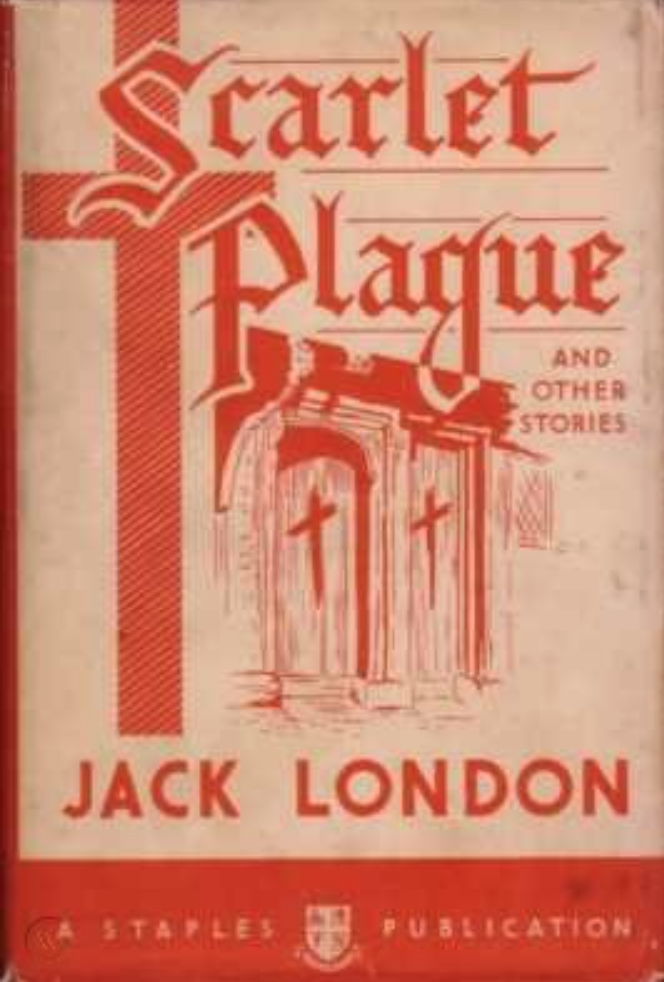
Earth Abides is a 1949 post-apocalyptic science fiction novel based on the 1912 short story “The Scarlet Plague”, by Jack London. It tells the story of the fall of civilization from deadly disease and its rebirth. The story is set in Berkeley and is told by Isherwood Williams, who emerges from isolation in the mountains to find almost everyone dead. The book won the first International Fantasy Award in 1951.
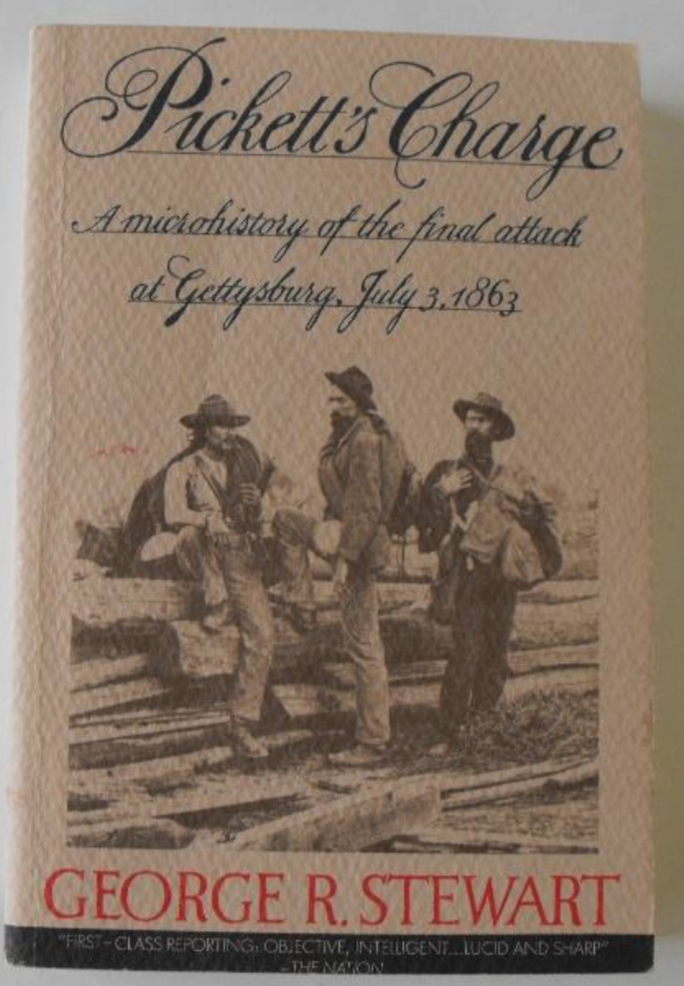
Stewart’s 1959 book, Pickett’s Charge: A Microhistory of the Final Attack at Gettysburg, July 3, 1863, is a detailed history of the final attack at Gettysburg. It was called in a review “essential for an understanding of the Battle of Gettysburg.”
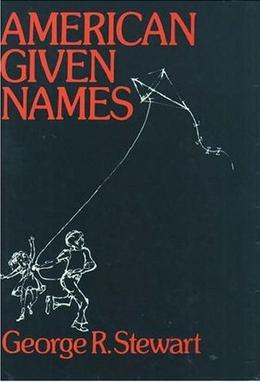
Stewart was a founding member of the American Name Society. I’m seeing why he has been called a polymath. He once served as an expert witness in a murder trial as a specialist in family names.
So, the point being, Earth Abides has strong Berkeley cred.
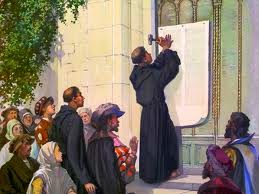
Back to our masked man – among the historical clippings found on utility poles, presumably placed there by the same masked man:
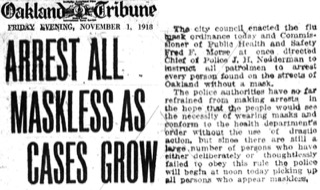
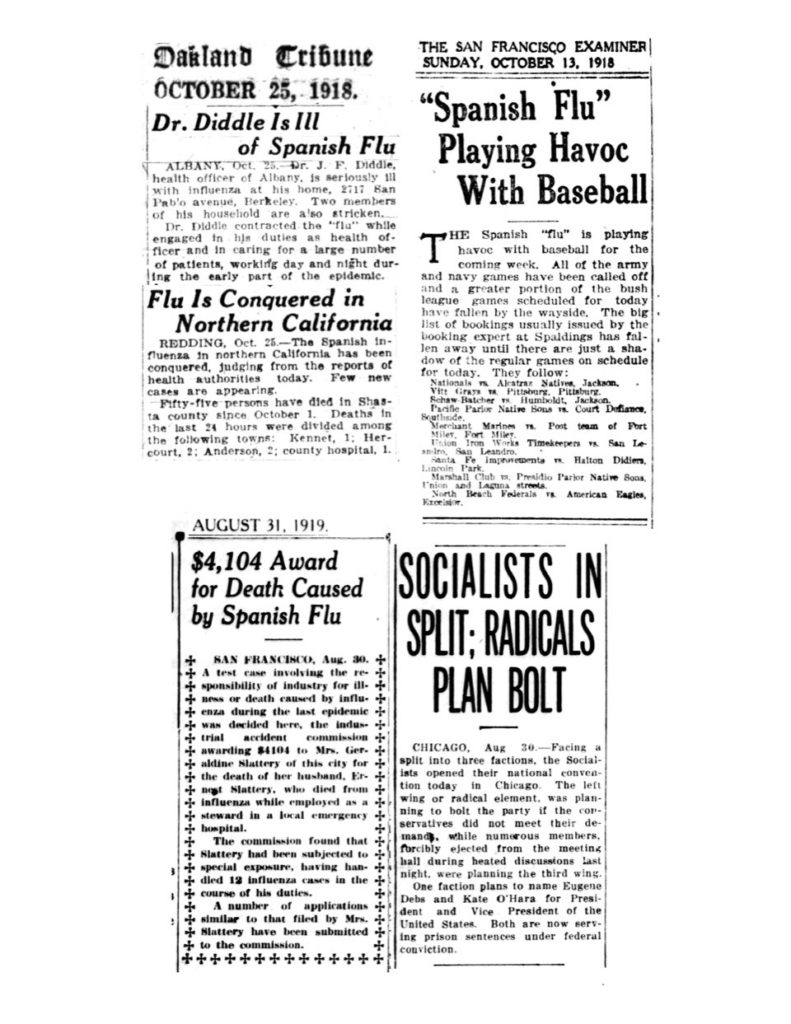
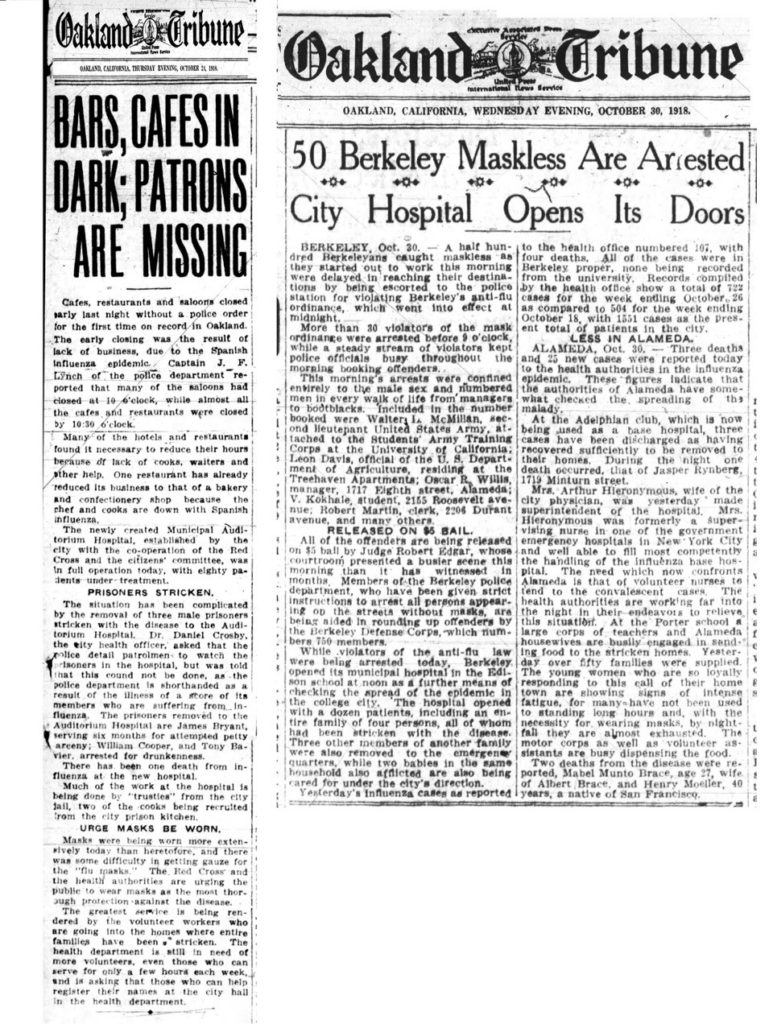
Most of the clippings deal with the Spanish influenza outbreak of 1918, described here with great detail. One clipping describes the “red plague” – socialism.
But the question remains —–
The masked man is not John Reid, nor Allen King, nor Bill Andrews – all names at one time attributed to the masked Lone Ranger of radio, movie, and television fame.
Our Masked Man is Lincoln Cushing, a Berkeley cultural treasure.

Here is a lot of information about him.
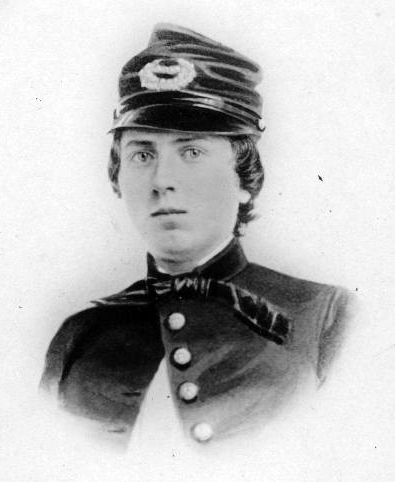
And, circles closing in, one of his relatives was Alonzo Hereford Cushing, was an artillery officer in the Union Army during the American Civil War. He was killed in action during Battle of Gettysburg while defending the Union position on Cemetery Ridge against Pickett’s Charge.
Our Cushing runs Docs Populi, a website that presents document for the public, largely posters.
The short story – he knows more about political and cultural posters than almost anyone in the world. He really does. He has been a strong and constant supporter of Quirky Berkeley. I like him and have learned a lot from him.
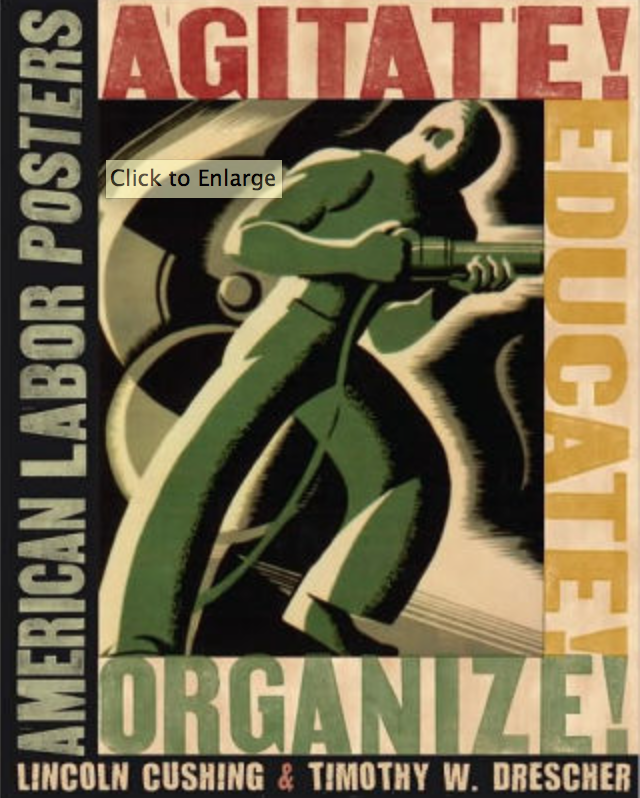
Of a recent poster project, he says this: “My head is exploding, spent all day putting this together. Several years ago my colleague Tim Drescher and I wrote a book on American labor posters – I grabbed some of those, and more, for a display of health care images. ‘Support our front line workers.'”
And he is quietly reminding us of history from which we have not learned. Those who do not learn history are doomed to repeat it.
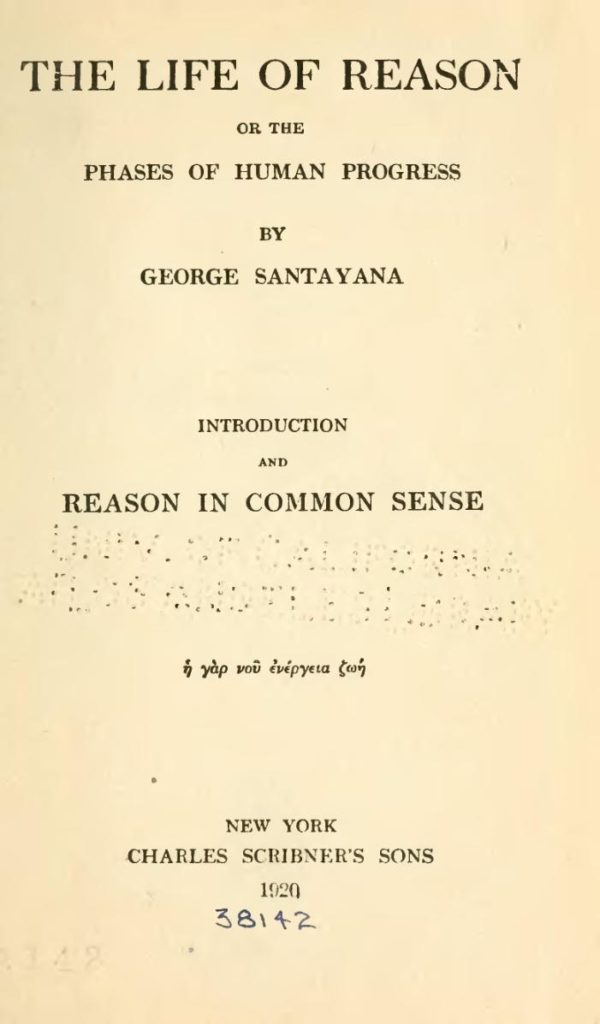
The quote is most likely the product of the writer and philosopher Jorge Agustín Nicolás Ruiz de Santayana y Borrás – known more commonly as George Santayana – in The Life of Reason: Five Volumes in One. In its original form it read, “Those who cannot remember the past are condemned to repeat it.”
I showed the draft of this post to my friend. He was sitting in his over-stuffed easy chair, feet on an ottoman, dozing. He woke when I came in. “With this Covid-19 thing, I find myself sleeping more. There aren’t markers for the days. Strange times.”
He only had one comment before passing judgment on my work. “As a matter of principle, the Lone Ranger did not shoot unless absolutely necessary and then only to wound and not kill. In five seasons with three more season of reruns (a total of 221 episodes) he never mortally wounded a criminal. He chased, captured and handed them over to a representative of law enforcement. He preferred that the legal system deal with them. Clayton Moore played the Lone Ranger on television except for the third season when he was replaced by John Hart. The public never truly accepted Hart as the Lone Ranger and Moore was brought back for the fourth and fifth seasons . He is the only person on the Hollywood Walk of Fame to have his character’s name along with his on the star, which reads, ‘Clayton Moore — The Lone Ranger'”
My friend got up and came back in a few minutes.
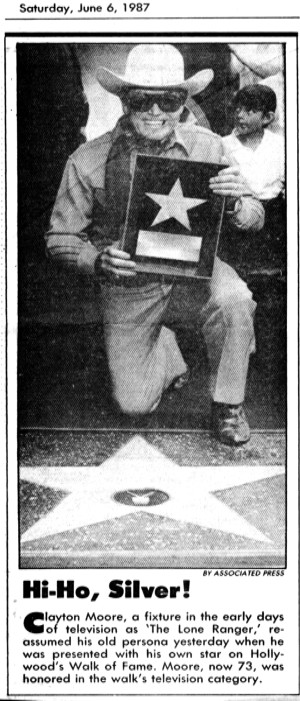
He handed me this clipping. “I knew it would come in handy one day.” I could almost hear the open of the show as I heard it when I was seven.
Yes, the clipping did in the end come in handy. What about the post about Lincoln Cushing’s masked man popular history campaign?



Ah, the Lone Ranger! Who can forget the theme music…(dudaDUTTdudaDUTTdadaDUT-TUT-TUT, etc…) Only in my early adult life did I come to know that it was the William Tell Overture. When my foreign-born husband played some of his favorite classical music albums for me I asked him why he liked the Lone Ranger theme, and he just looked at me blankly. Cultural Literacy is a thing!
EXACTLY my history on the theme. Perfect!